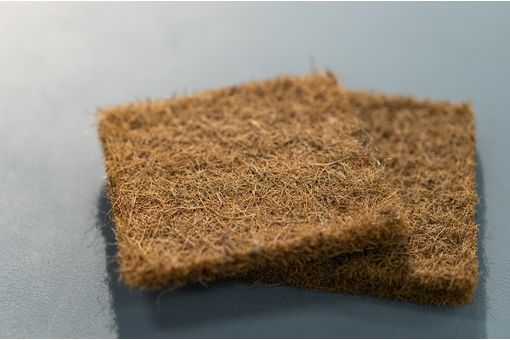Interviews
Olympic supply chains should be ethical - ITUC
08 May '12
5 min read
Workers making Olympic sportswear for London 2012 for top brands and high street names including adidas and Next are being paid poverty wages, forced to work excessive overtime and threatened with instant dismissal if they complain about working conditions, according to a new report from the Play Fair 2012 campaign published.
Last autumn researchers working on behalf of Play Fair campaign (which includes the International Trade Union Confederation, the International Textile, Garment and Leather Workers' Federation and the Clean Clothes Campaign) visited ten factories – eight of which were producing Olympic goods – in China, the Philippines and Sri Lanka. Across the three countries they talked to 175 workers about their working conditions.
The report “Fair Games? Human rights of workers in Olympic 2012 supplier factories” uncovers a range of abuses, providing more evidence to increase the pressure on the International Olympic Committee (IOC) to act to improve the working conditions in Olympic supply chains in the run up to Rio 2016, says Play Fair.
“Fair Games?” contains many examples where workers making Olympic goods have been badly treated including:
• In China workers at a factory in the Guangdong Province which produces sportswear for Adidas were contracted to work in two separate locations 200km apart so lived in fear of suddenly being sent miles from home for their jobs.
• Workers at the same Amerseas Enterprises Factory also complained of regularly having to do overtime in excess of the legal minimum (with working hours from 8am to 10pm not uncommon even at less busy times) and of not being able to wear the necessary safety masks to protect against dust because of unrealistic production targets.
• In the Philippines workers complained of pay rates so low that they were forced to pawn their ATM cards to loan sharks for 'pay day loans' to see them through the month. Workers in the factories producing for Adidas said they were also told when they started that overtime was compulsory.
• In Sri Lanka workers also said that their pay was not enough to meet their basic needs – those questioned said they earned a maximum of 25,000 LKR a month (£122), little more than half the country's living wage of 45,000 LKR (£220).
• Workers at the Next Manufacturing factory in Sri Lanka reported how the company used an external agent to hire short-term temporary workers. The agent made the workers do double shifts each day – after completing a full shift plus overtime at Next they were transferred to another factory where they had to work until 2.30am. The next morning they had to report for their 8am shift at Next.
• There were no unions permitted in any of the factories and in China, workers said that anyone talking to colleagues about the need to improve factory conditions would be dismissed instantly.
Following research undertaken by Play Fair camping earlier this year – which found evidence of child labour, excessive hours, poverty pay and dangerous working conditions in Chinese factories producing pin badges and London 2012 mascots – the London Organising Committee of the Olympic Games and Paralympic Games (LOCOG) agreed to get tougher with the factories in its various supply chains.
Last autumn researchers working on behalf of Play Fair campaign (which includes the International Trade Union Confederation, the International Textile, Garment and Leather Workers' Federation and the Clean Clothes Campaign) visited ten factories – eight of which were producing Olympic goods – in China, the Philippines and Sri Lanka. Across the three countries they talked to 175 workers about their working conditions.
The report “Fair Games? Human rights of workers in Olympic 2012 supplier factories” uncovers a range of abuses, providing more evidence to increase the pressure on the International Olympic Committee (IOC) to act to improve the working conditions in Olympic supply chains in the run up to Rio 2016, says Play Fair.
“Fair Games?” contains many examples where workers making Olympic goods have been badly treated including:
• In China workers at a factory in the Guangdong Province which produces sportswear for Adidas were contracted to work in two separate locations 200km apart so lived in fear of suddenly being sent miles from home for their jobs.
• Workers at the same Amerseas Enterprises Factory also complained of regularly having to do overtime in excess of the legal minimum (with working hours from 8am to 10pm not uncommon even at less busy times) and of not being able to wear the necessary safety masks to protect against dust because of unrealistic production targets.
• In the Philippines workers complained of pay rates so low that they were forced to pawn their ATM cards to loan sharks for 'pay day loans' to see them through the month. Workers in the factories producing for Adidas said they were also told when they started that overtime was compulsory.
• In Sri Lanka workers also said that their pay was not enough to meet their basic needs – those questioned said they earned a maximum of 25,000 LKR a month (£122), little more than half the country's living wage of 45,000 LKR (£220).
• Workers at the Next Manufacturing factory in Sri Lanka reported how the company used an external agent to hire short-term temporary workers. The agent made the workers do double shifts each day – after completing a full shift plus overtime at Next they were transferred to another factory where they had to work until 2.30am. The next morning they had to report for their 8am shift at Next.
• There were no unions permitted in any of the factories and in China, workers said that anyone talking to colleagues about the need to improve factory conditions would be dismissed instantly.
Following research undertaken by Play Fair camping earlier this year – which found evidence of child labour, excessive hours, poverty pay and dangerous working conditions in Chinese factories producing pin badges and London 2012 mascots – the London Organising Committee of the Olympic Games and Paralympic Games (LOCOG) agreed to get tougher with the factories in its various supply chains.
Popular News
Leave your Comments
Editor’s Pick
Ritesh Dodhia
Dodhia Synthetics Limited
Folker Stachetzki
Brother Internationale Industriemaschinen GmbH
Sirinada Preechawitayakul
Brand - Senada
Dr. Sameer Sood
National Institute of Fashion Technology
































-Ltd..jpg?tr=w-120,h-60,c-at_max,cm-pad_resize,bg-ffffff)





.jpg?tr=w-120,h-60,c-at_max,cm-pad_resize,bg-ffffff)
.jpg?tr=w-120,h-60,c-at_max,cm-pad_resize,bg-ffffff)






